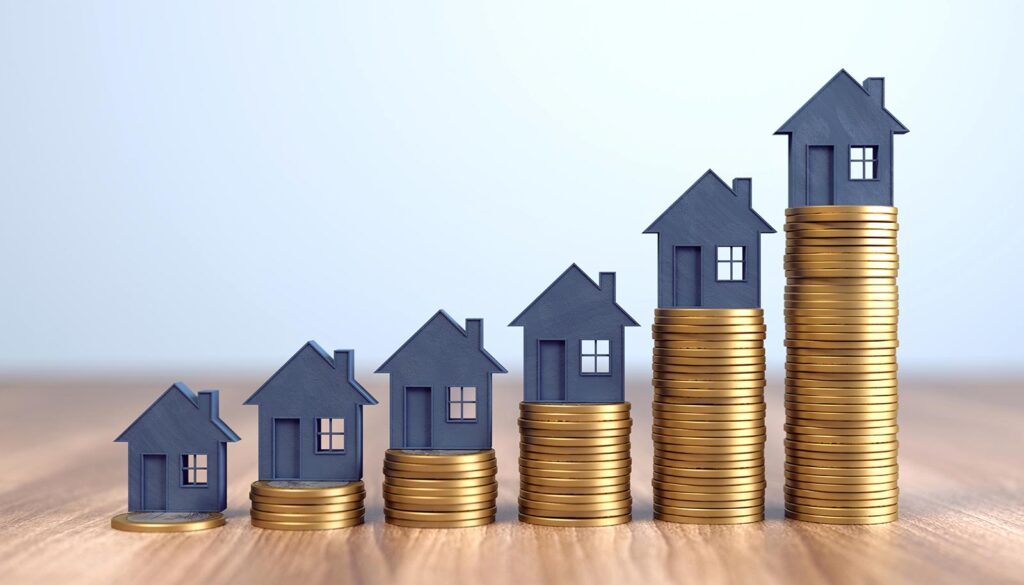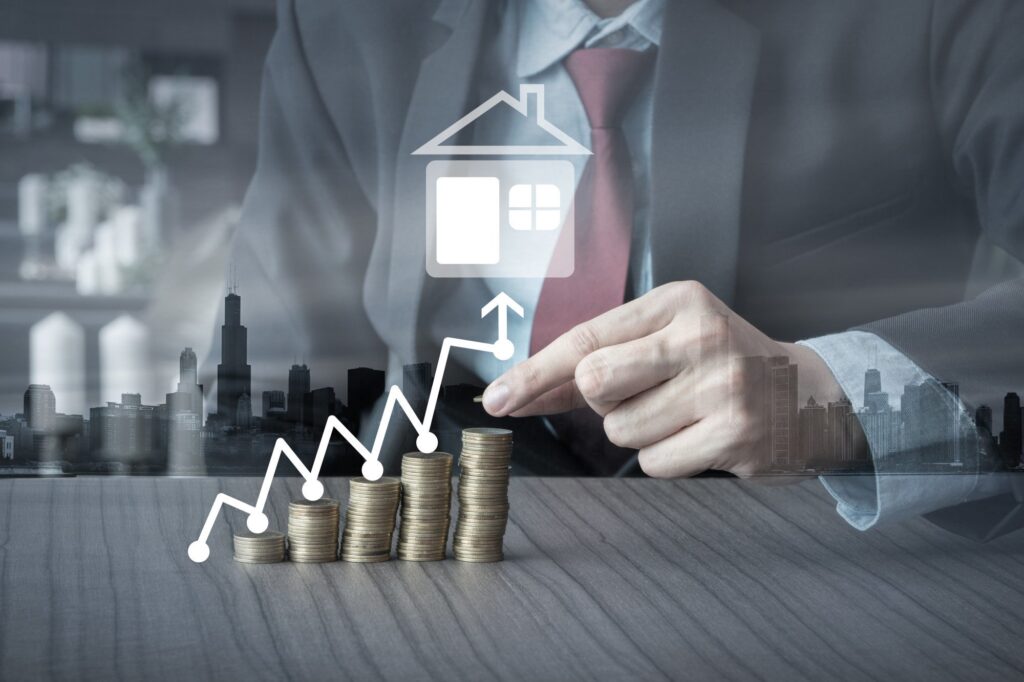
If you dream of buying a new commercial building or property, valuation is the best way to know its worth. Commercial building valuation is an important method for assessing the value of any property based on market trends, comparable sales, location, zone, and many other factors.
The building valuation process allows you to decide on purchases, sales, leases, and financing of the property. Here, we describe the calculation process, methodologies, key considerations, and more about valuing a commercial building.
What Is Commercial Building Valuation?
Commercial building valuation is a process that determines a commercial space’s worth based on different factors. These factors help assess the monetary value of a commercial property, such as office space, buildings, shopping complexes, and so on.
Building valuation also helps determine the property taxes and insurance that need to be paid. This way, you can ensure that the property aligns with government rules and regulations.
Importance Of Commercial Building Valuation

Commercial buildings are valued based on different criteria. The valuation is important to ensure stakeholders get the perfect idea before buying their desired property. Commercial building valuation is important because:
Keeping Track of Finances
Knowing the current value of your commercial property helps you invest smartly. Accurate valuations make it easy to deal with properties with the correct price and worth. For that, you can check the market trends and look for economic fluctuations of your country and state.
Financial Reporting
Property Valuation is important for financial reporting purposes, such as balance sheets, loan applications, and investor presentations. Lenders and investors rely on accurate property valuations to assess the financial value of commercial properties.
Property Taxes

Property taxes are often based on the assessed value of a building. Hence, an accurate valuation ensures that owners pay the correct taxes.
Also, capital gains tax is based on the value of your property. Commercial property valuations help determine how much tax you need to pay.
Strategic Planning
Knowing your properties’ worth can help you plan ahead and manage your investments better. With valuation data, property owners can make smart decisions about which properties to keep, sell, or improve.
Sellers can use the information to increase the value of their property, while buyers can decide whether a property is worth investing in in the long run.
Factors Influencing Commercial Building Valuation

Multiple factors affect the valuation of a building. The factors which affect the commercial property valuation are:
Location
The location of a commercial property significantly impacts its value. Properties in prime locations with high foot traffic and accessibility command higher prices.
Size and Structure
The size and layout of a commercial building affect its valuation. Larger buildings with flexible layouts tend to have higher values. Also, buildings in busy areas or accessibility nearby tend to be worth more.
Condition
The condition of the building, including its age, maintenance, and upgrades, plays a vital role in valuation. Well-maintained properties tend to be more expensive.
Income Generating Potential

The income-generating potential of a commercial building, such as rental income or potential revenue from businesses operating within it, is a key factor in valuation. Properties with a high-income potential are always kept at high prices whereas low income generating properties are less likely to be sold.
Market Trends
Market trends and conditions, including supply and demand dynamics, economic factors, and industry trends, influence the valuation of commercial buildings. Hence keeping an eye on market trends can help determine the worth of the commercial property.
Top 04 Challenges In Commercial Building Valuation
Valuing a commercial building comes with different challenges and obstacles:
Limited Comparable Data

Sometimes, properties with unique features tend to have less comparable sales data in the market. Without enough data, it becomes challenging to determine an accurate valuation.
Change In Market Trends
Commercial real estate markets tend to fluctuate over time due to economic conditions, supply and demand, and industrial values. This makes calculating the value of commercial property very difficult.
Environmental Factors
Environmental conditions, such as contamination or environmental hazards, can impact the property’s condition. Properties with tears and damage require expert treatment, which may also affect the property’s market value.
Incorrect Valuation Method
The valuation method plays a key role in valuing a commercial building. Choosing the incorrect method can provide incorrect data, ultimately affecting the property’s actual worth. This generally happens when people estimate their worth without expert assistance.
How Do You Calculate The Market Value Of A Building?

The calculation of market value can be conducted by a few methods. Some of the methods used for commercial building valuation are:
Rental Method
In the rental method, calculate how much money the building makes after taking out all the costs from the rent you get. Then, you need to figure out the value of the building by using a specific interest rate.
Direct Comparison Method
In this method, your property is compared to others like it nearby. The valuer checks things such as location, size, condition, etc. The amenities and unique features are also considered.
Valuation Based On Profit
Determine the value of commercial buildings based on their profit. Subtract all expenses from the income they bring in. Then, multiply that by the interest rate to find the value.
Development Method
If a property is being built or fixed up, check the cost to finish the job and the money it could bring in afterward. Then, compare the cost to the expected value of the property to make a decision.
Summation method
The summation method calculates a property’s value by adding up the value of its land and any improvements on it. It considers factors like the size of the land, its location, and any buildings or structures on it. This method helps determine the total worth of the property as a whole.
Top 03 Tips For Effective Commercial Building Valuation

To conduct a fair commercial building valuation, you can follow a few tips:
Here are top 03 tips for valuing commercial buildings effectively:
Check Market Trends
Understand the local area and the demand for commercial properties there. Look at recent sales and rentals to understand what similar buildings are worth.
Consider Long Term Potential
A commercial building with a good size and location always tends to be of higher value. Considering that, try to look for any deficit and sort it out before making a deal.
Take Expert Help
For valuation and associated tasks, hire a qualified valuer who knows about commercial properties. They can give accurate advice and help you get the best value for your building.
How To Increase Commercial Building Value?
Sometimes, the market value of a commercial building is negatively affected by different factors. Considering that, you can try to increase commercial building value by following some steps:
Renovate The Property
Investing in renovations and upgrades can modernize the building’s exterior and functionality. This may include repairing visible damages, replacing worn-out or outdated features, adding landscaping elements and more. This will attract tenants and customers to invest in the property.
Tenant Improvements
Making improvements to accommodate tenants’ specific needs can increase the property’s desirability and rental income. This could involve customizing interior or exterior spaces, adding amenities such as fitness centres or conference rooms, or adding lease amenities.
Strategic Marketing and Branding
Effective marketing and branding strategies can enhance the property’s visibility and reputation in the market. This may include professional digital marketing campaigns, hosting events or promotions to attract tenants or customers.
Upgrade Security Measures
Improving security systems can help you gain more customers, as safety is everyone’s priority. Install security cameras, alarm systems, and access control systems to protect the property from theft or unauthorized access.
Install proper lighting and landscaping designs to find criminal activities and enhance safety on the premises.
Update Technology
Technology runs the world now. Hence invest in high-speed internet connectivity, wireless networks, and communication systems to meet the needs of modern businesses and tenants. Also, add smart building technologies such as automated lighting, HVAC controls, etc. to improve efficiency and convenience.
What Is Commercial Building Valuation For Insurance?

Commercial building valuation for insurance indicates the cost to rebuild a commercial property due to adverse situations, such as storms or fire. This helps ensure that the property is properly insured to cover those costs.
The valuation considers the cost of labour and materials required to rebuild or repair the property to its pre-loss condition.
What Is A Commercial Building Valuation Report?
A commercial building valuation report is a detailed document to determine the value of a commercial property. It’s important for investors, lenders, and stakeholders to choose the best property for themselves. A commercial building valuation report includes the following:
- Property Details
- Purpose
- Scope
- Market Analysis
- Comparable Sales
- Income Analysis
- Supporting Documents
Bottom Line
The commercial building valuation is the ultimate way to determine the actual worth of a commercial property. You can choose your desired property with the exact budget and amenities using the valuation. Understanding the process, factors, and types of valuation reports can help you deal with various agents and their valuations.
